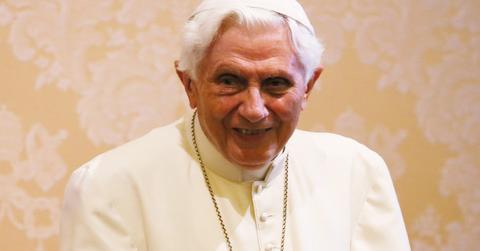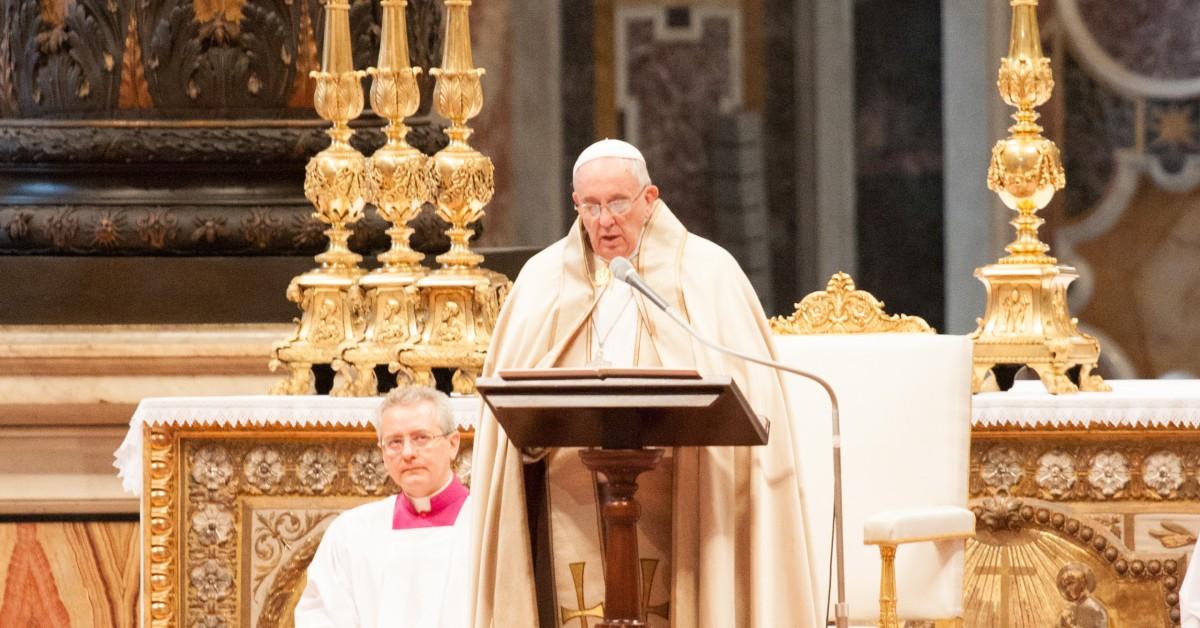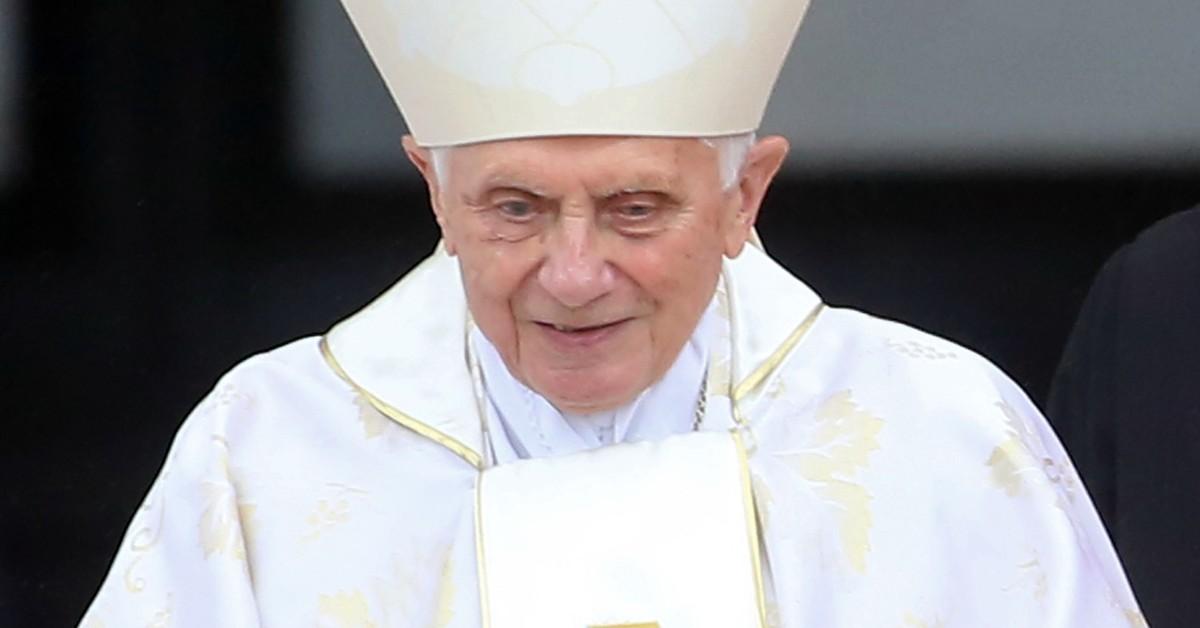Pope Benedict XVI Was the First Pope to Resign Since 1415 — What Was Behind the Decision?
Updated Dec. 23 2019, 3:00 p.m. ET

Pope Benedict XVI was the first pope to resign in modern history.
The religious leader stepped down on Feb. 28, 2013 after just eight years of service. Although the event garnered a great deal of international attention, the reasons behind the decision were relatively conventional. A lifelong arthritis sufferer, the Pope had begun experiencing severe symptoms during a trip to Brazil. By 2013, many were concerned about whether he was fit for the role.
Where is Pope Benedict today?
What led to Pope Benedict's resignation?
Although the Pope cited health concerns as the reason behind the decision, the media coverage dating back to 2013 shows a different image. As Fernando Meirelles' new Netflix movie, The Two Popes, reminds us, this was around the same time when leading members of the clergy came under scrutiny for misconduct and corruption.

Ever since his resignation, the pope (or Joseph Ratzinger) adhered to a cautious, reserved approach when it came to matters of public or political importance.
As The Washington Post notes, this was done in a bid to pay respect to Pope Francis – who had to differentiate himself from his predecessor and establish himself as a pontiff with a radically different mentality.
Francis' critics would reach out to Joseph for help, who, in turn, refused to issue statements in any capacity.
So, what was the Pope Benedict scandal about?
Despite his years-long insistence on leading a secluded life, a recent crisis had proven severe enough to warrant a response on his behalf.

A surge of sexual abuse reports taking place in the 1960s shook the institution to its core – and risked alienating a large percentage of religious followers.
Pope Francis issued a letter promising abuse survivors that their complaints will be heard. Benedict stepped on the scene only to take a vastly different approach. He appealed to the clergy.
The more progressive and liberal-minded of the two, Francis pledged to review traditional church procedures, guaranteeing that similar incidents will not take place.
Joseph defended the Catholic church. In his three-part essay, he assessed the larger-scale societal changes taking place back in the period, how these affected the priests, proposing solutions for how the incidents should be handled.
Francis' letter was met with applause by religious followers and beyond. Joseph's response was the one favored by the clergy.
As per NPR, this was the first occasion the pope emeritus decided to step up and cast doubt on Pope Francis' proposed solution.
While the sexual abuse scandal left the Catholic church in a state of crisis, it also enabled Joseph to exercise his powers and unceasing popularity among the more traditional and conservative-minded religious leaders, promptly reminding them of the shortcomings of Pope Francis' conduct.
Where is Pope Benedict today?
The pope emeritus leads a quiet life.
However, he remains the person most often evoked by Francis' vehement opponents. A representative of the old-fashioned mentality, he embodies the values critics sorely miss from Pope Francis' dictate.
As The Washington Post notes, Joseph still dresses in the all-white attire of pontiffs. He resides in the Mater Ecclesiae Monastery, a newly-renovated building in the Vatican.